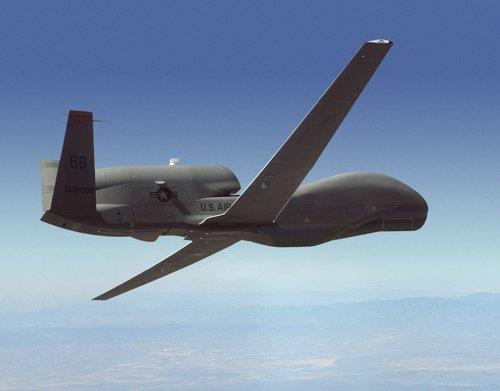Seoul and Washington were on high alert Wednesday over North Korea’s “Christmas gift” and its year-end deadline for US-North Korea denuclearization dialogue.
According to reports, Seoul’s presidential office and concerned governmental bodies including the unification and defense ministries were monitoring North Korea for any unusual activities.
 |
(Yonhap) |
The militaries of South Korea and the US are reported to have deployed surveillance assets in and around the Korean Peninsula to beef up monitoring of North Korea.
In addition to assets based in South Korea, the US is reported to have flown four spy aircrafts -- RC-135W Rivet Joint, E-8C, RQ-4 Global Hawk and RC-135S Cobra Ball -- over and around the peninsula on Tuesday and early Wednesday.
On Tuesday in the US, President Donald Trump downplayed the potential impact of any provocation from North Korea, saying that the US would “deal with it very successfully.”
“That’s OK. We’ll find out what the surprise is and we’ll deal with it very successfully,” Trump said when asked about North Korea’s “Christmas gift.”
The issue of North Korea’s gift to the US arose earlier this month, following a statement from a North Korean diplomat.
On Dec. 3, Ri Thae Song, a North Korean vice foreign minister handling US affairs, was quoted by the North’s state media as saying that it is “entirely dependent on the US’ decision on what is chosen as the Christmas gift.”
The comment has sparked speculations that Pyongyang will carry out some form of provocation on or around Christmas. The speculations were further supported by the North revealing that it has conducted a test at its satellite launching station.
Trump’s statement from Tuesday is the latest in a series of warnings against North Korea.
On Friday, chairman of the US Joint Chiefs of Staff Gen. Mark Milley said that the US is “prepared for whatever,” should Pyongyang carry out a provocation.
With the nature of the possible provocation remaining unclear, a number of scenarios have been voiced by observers in and out of Korea. Of the speculations, Pyongyang testing long-range missile is considered one of the most likely. The North has conducted a series of short- and medium-range missile tests this year, and has claimed that an “important test” that will have significant impact on its strategic position has been carried out.
Despite the confidence voiced by Trump and US military leaders, the US appears to be on high alert, increasing surveillance and issuing warnings to airlines.
The US Federal Aviation Administration is reported to have issued an alert to commercial airlines stating “warning of longer-range missile test launches prior to the end of 2019, or in the early part of 2020.”
Seoul, meanwhile, is seeking to increase international cooperation for facilitating the resumption of US-North Korea talks.
On Tuesday, President Moon Jae-in, Chinese Premier Li Keqiang and Japanese Prime Minister Shinzo Abe held trilateral a summit in China, and pledged to cooperate to in facilitating denuclearization talks.
On the previous day, Moon and Chinese President Xi Jinping held a bilateral summit, where North Korea was at the top of the agenda. According to Seoul’s presidential spokesperson Ko Min-jung, the two leaders agreed that they share a common goal on North Korean denuclearization, and Xi stressed the need for the two countries to work together to keep dialogue momentum alive.
By Choi He-suk (
cheesuk@heraldcorp.com)








![[Today’s K-pop] Blackpink’s Jennie, Lisa invited to Coachella as solo acts](http://res.heraldm.com/phpwas/restmb_idxmake.php?idx=644&simg=/content/image/2024/11/21/20241121050099_0.jpg)